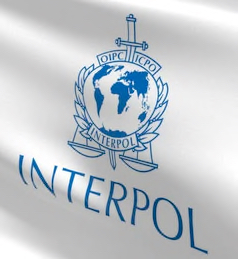Mathieu Deflem
Google Scholar | ResearchGate | ORCID
This is a copy of an op-ed in the Orion Forum, published by the Orion Policy Institute, Washington, DC, December 13, 2021.
The original paper is published online at Orion Forum. Also available as PDF file.
Please cite as: Deflem, Mathieu. 2021. "The Future of Interpol: Policing International Crime in a Political World." Op-ed. Orion Forum, December 13, 2021. https://orionpolicy.org/the-future-of-interpol-policing-international-crime-in-a-political-world/
The largest organization facilitating cooperation among police across nations, Interpol was established in Vienna in 1923 as the International Criminal Police Commission. From the start, the organization was meant to be a practical, non-political entity designed to establish direct means of communication and information exchange among police in the fight against international crime. Re-founded in 1946 as the International Criminal Police Organization, the organization has since steadily expanded its membership, presently counting police from 195 nations.
Despite its success as an ever-growing international organization, Interpol has regularly faced criticisms and problems. During World War II, the organization was taken over by Nazi Germany, although without much, if any practical consequences. During the Cold War, concerns over the political abuse of Interpol’s international notices system by police from then-Communist Czechoslovakia led the FBI to leave the organization as the American representative. Since then, such political disturbances have continued to plague Interpol from time to time. Most recently, widespread concerns have been voiced over the election of Interpol’s President, Ahmed Naser Al-Raisi of the United Arab Emirates, who is facing serious allegations of overseeing, and failing to properly investigate, police torture and human-rights abuses in his country.
The very reason Interpol was founded was to fight non-political international crimes efficiently, an objective that was enabled by sufficiently autonomous police agencies uniting on the basis of a shared professional understanding concerning the means and objectives of controlling international crime. Interpol’s independence in international police work does not mean the organization is above the law, nor does it absolve the organization and its members from legal accountability. In view of its growth and the widely accepted raison d'être of its existence, Interpol must always rely on legitimacy as a global organization. As such, the symbolic role of the President of Interpol is as important in displaying global unity as is the practical function of its Secretary-General, who oversees the day-to-day operations, to fight international crime effectively.
The election of Al-Raisi in November 2021 has placed Interpol in a bad spotlight, to wit the enormous negative media publicity the matter has received. Moreover, from a practical viewpoint, the potential for abuse of Interpol’s technologies and methods of cooperation, especially the red notices system asking for the arrest of fugitives from justice, becomes a thorny issue under politicized conditions that betray Interpol’s own founding principles. International police cooperation can be achieved concerning non-political, distinctly criminal matters, for which reason precisely Interpol was founded. But cooperation will fail when international police operations are politically motivated.
Interpol can today claim to be among the world’s largest international organizations, but it must operate by professional police standards. This objective is jeopardized when participating police function as a political instrument of autocratic governments, such as Russia, China, Turkey, and Venezuela, among others, seeking to show themselves to be viable players in world affairs. Under these circumstances, it is possible that police from countries lacking democratic ideals and professional standards will seek to take advantage of Interpol’s notices system. Any assurances of the Secretary General that all requests will be carefully vetted are meaningless because cooperation in an atmosphere of mutual trust is the very essence of Interpol. This condition of implied trust can only be guaranteed if participating police institutions are explicitly committed to democracy and professionalism.
Practically, moreover, any questionable participation in Interpol by police from autocratic regimes might lead police from other, democratic countries to be much less willing to cooperate. And should the police of a nation participating in Interpol reject certain requests because of suspected political abuse, international cooperation can be further undermined when other police members will in turn retaliate by rejecting legitimate requests.
The potential for such problems of both legitimacy and effectiveness in international police work are increasingly real today because Interpol’s leadership has placed more emphasis on growth in membership rather than adherence to its police mission. As such, the success of Interpol as a global organization is one of the factors contributing to its failure as an effective instrument in the fight against international crime. If international policing on a multilateral scale is to have any meaningful future, rather than just be a symbolic platform to show goodwill, the organization’s constituent members will have to re-align the mission of the organization in terms of its own founding principles. Interpol’s success is to be measured, not by the number of nations represented, but by the quality of its work and the fulfillment of its duties as an instrument in the fight against international crime.
The time is now for Interpol and its members to be decisive and ensure that the organization lives up to its standards. Minimally, action must be taken to not allow the organization to be tainted by leaders with problematic human-rights records and, conversely, to allow police from democratic states (including Taiwan) to participate fully. The organization’s investigative activities also need to be monitored, and , if necessary, police from autocratic states should be removed from membership. Otherwise one cannot blame democratically committed police agencies to pursue their international objectives unilaterally or on a bilateral scale. The proliferation of such limited but very precisely directed and highly effective cooperation efforts, especially by large law enforcement organizations such as those of the United States, might then ultimately render Interpol obsolete.
See other writings on international policing.
